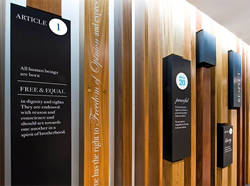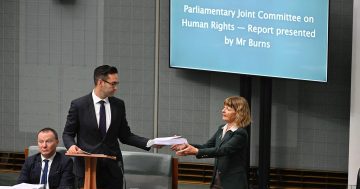 Australia’s laws against discrimination activities are outdated, difficult to use and do not respond to the challenges of modern life according to the President of the Australian Human Rights Commission (AHRC), Rosalind Croucher.
Australia’s laws against discrimination activities are outdated, difficult to use and do not respond to the challenges of modern life according to the President of the Australian Human Rights Commission (AHRC), Rosalind Croucher.
President Croucher’s comments follow the release of an AHRC position paper, Free and Equal: A reform agenda for federal discrimination laws, outlining 38 recommendations for reform.
Discrimination laws are those which make it illegal to discriminate against someone because of their age, disability, sexual orientation, religion, pregnancy, status as a parent and more.
“When I first announced the Commission would conduct a National Conversation on Human Rights, my goal was to develop a roadmap that would guide Government action and community partnerships to fully realise human rights and advance equality,” President Croucher said.
“I wanted to be ambitious in setting targets to address inequality where it exists – to reimagine our system of protections, so that we can provide everyone with the opportunity to be the best that they can be,” she said.
“Put simply, Australia’s discrimination laws are falling short, and the need for reform is pressing.”
President Croucher said the Position Paper was part of the AHRC’s Free and Equal: An Australian conversation on human rights project and recommended four pillars of reform: Building a preventative culture; Modernising the regulatory framework; Enhancing access to justice; and Improving the practical operation of laws.
She said the Commission’s recommendations and the reform agenda would bring Australia’s discrimination laws into the 21st century.
“Some of these laws have remained substantially untouched since they were introduced over 30 and 40 years ago,” the President said.
“They are outdated, difficult to use and do not respond to the challenges of modern life,” she said.
The AHRC’s 349-page Position Paper can be downloaded at this PS News link.










